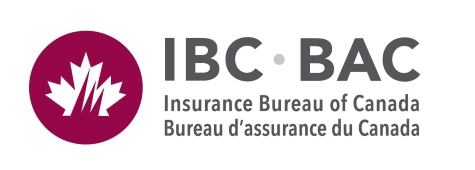ST. JOHN'S, Jan. 31, 2019 /CNW/ - Today, the Newfoundland and Labrador (NL) Board of Commissioners of Public Utilities (PUB) released its report on auto insurance. It summarizes the public hearings that took place over the past year, including the many submissions from organizations and drivers. The report does not, however, include any recommendations on the next steps to improving auto insurance in NL.
"We applaud the board for listening to all sides of this crucial issue," said Amanda Dean, Vice-President, Atlantic, Insurance Bureau of Canada (IBC). "The bottom line is that this province needs a sustainable, affordable product that helps injured people get better faster. Now that the government has the PUB report, it has the opportunity to make real change for drivers in the province."
The report points to significant shortfalls in the current auto insurance system. Due to the high premiums that consumers pay, and without changes to the auto insurance system, it will continue to drain the pocketbooks of NL drivers.
"Every day, the people of this province are telling our industry about the effect that the cost of auto insurance has on their household income," Dean added. "We need claims cost controls in place, based on the evidence in the PUB report, to protect everyone who pays for an auto insurance policy. This means changing the current auto insurance system."
In recent years, auto insurance rates in NL have skyrocketed, with drivers now paying over $1,100 a year, on average. This is significantly higher than New Brunswick's average premium of $819, Nova Scotia's average premium of $842 and Prince Edward Island's average premium of $796. The reason for NL's high premiums is the high cost of claims. Both the cost per claim and the claim frequency are substantially higher in NL than in the rest of Atlantic Canada.
IBC made four recommendations during the public hearing process. One recommendation is to cap pain and suffering awards for those suffering minor injuries. Some have publicly argued that a minor injury cap will take away drivers' rights. In response, Dean said, "A minor injury cap would not take away the rights of people to sue if they are legitimately injured and require additional care. In fact, reforms to the system would provide quicker access to rehabilitative care."
IBC will continue to work with government, policyholders and other stakeholders to deliver the best auto insurance system for NL drivers.
About Insurance Bureau of Canada
Insurance Bureau of Canada (IBC) is the national industry association representing Canada's private home, auto and business insurers. Its member companies make up 90% of the property and casualty (P&C) insurance market in Canada. For more than 50 years, IBC has worked with governments across the country to help make affordable home, auto and business insurance available for all Canadians. IBC supports the vision of consumers and governments trusting, valuing and supporting the private P&C insurance industry. It champions key issues and helps educate consumers on how best to protect their homes, cars, businesses and properties.
P&C insurance touches the lives of nearly every Canadian and plays a critical role in keeping businesses safe and the Canadian economy strong. It employs more than 126,000 Canadians, pays $9 billion in taxes and has a total premium base of $54.7 billion.
For media releases and more information, visit IBC's Media Centre at www.ibc.ca. Follow us on Twitter @InsuranceBureau or like us on Facebook. If you have a question about home, auto or business insurance, contact IBC's Consumer Information Centre at 1-844-2ask-IBC.
If you require more information, IBC spokespeople are available to discuss the details in this media release.
SOURCE Insurance Bureau of Canada

To schedule an interview, please contact: Steve Kee,Director, External Communications, 416-362-2031 ext. 4387, [email protected]

Share this article